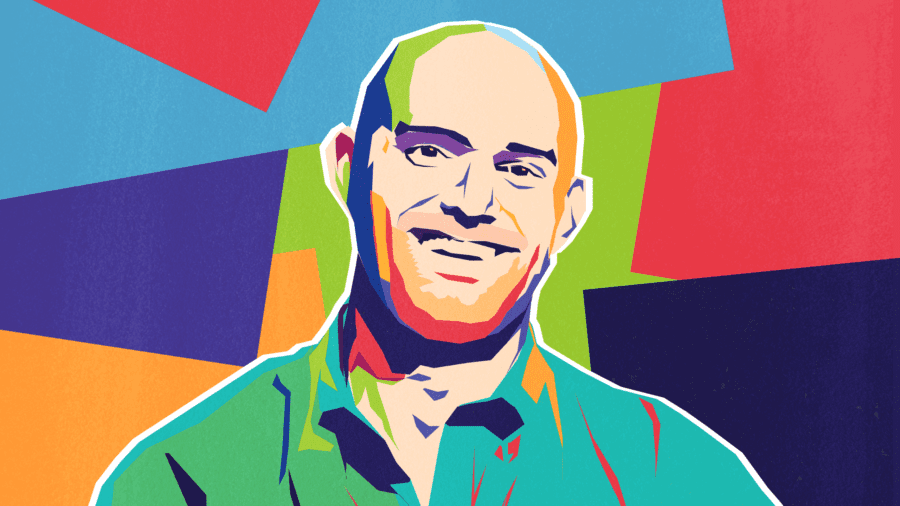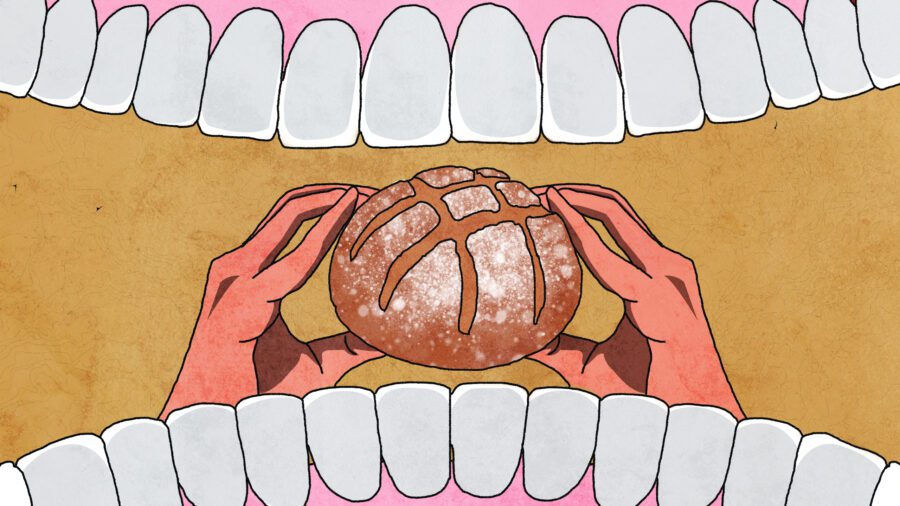
How We Can End the Stigma Surrounding Mental Health
It’s ok not to be ok — your mental health is as important as your physical health.
As simple as that phrase seems, admitting you need assistance with your mental health is challenging. Unfortunately, much of that reservation stems from lies we have been told our entire lives about mental health.
Over the years, stigma has grown around mental health, counseling, and treatment. To break down this stigma and take control of our own stories, we need to begin by realizing mental health issues affect everyone, and gaining support helps us take the necessary steps toward becoming whole again.
Why Is There a Stigma on Mental Health?
Mental health issues don’t discriminate between people – things like depression, anxiety, and stress disorders can touch anyone at any time.
However, many misconceptions keep people from getting help or speaking out about their experiences with mental illness. Much of this thinking comes from society’s pressure to fit in and keep emotions from rising to the surface. People are afraid that their mental health problems make them abnormal or weird and that they are alone in their struggle.
In reality, that couldn’t be further from the truth. According to the CDC, 20% of American adults are diagnosed with depression, and 40 million adults in America alone struggle with anxiety disorders. Everyone has mental health challenges they deal with daily, and these things are part of what it means to be human. However, when people buy into the lies that they need to be “normal,” mental health stigma grows.
To beat the stigma surrounding mental health, we need to be open about the things that weigh us down. It’s time to start talking candidly about mental health and show the world that it is okay to be different and to struggle. We can do this by seeking professional help when needed, opening up to friends and family about our mental health, and sharing our stories online. With each story we share, we break down the stigma and open up space for others to come forward.
Mental Health Statistics: You Are Not Alone
One of the ways mental health issues like depression and past trauma controls people is by making them think they are alone in their struggle. The more you believe you are the only one experiencing an overwhelming sense of weight or that you are the only one dealing with the shame of abuse, the easier it is to be controlled by your mental affliction. If your mental health keeps you from feeling whole, know that you are not alone in this fight.
Recent studies done by the National Alliance on Mental Illness (NAMI) showed that mental health issues are more prevalent than most people may think:
- 1 in 5 adults experience some form of mental conditions
- 75% of all lifetime mental conditions start by age 24
- Suicide is the 2nd leading cause of death in people aged 10-34
- Only 46.2% of American adults with mental issues receive treatment
Mental health issues aren’t as isolated as many people try to make them appear. For example, you go to the grocery store, and there are 100 people there. Statistically, 20 of them are living with mental health issues. The root of those issues may be different, but we’re all on a shared journey toward better mental health. The issue is, not everyone feels like they can talk about it.
Join In 200 Million+ On The Journey to Greatness
The Benefits of Talking About Mental Health
When we keep our mental health struggles hidden away, it only makes them worse. Many times our mental health issues stem from past trauma in our lives. After these events happen, we paint a picture that we will never experience things the right way again.
If we let those ideas grow without receiving support, we begin to write a false narrative of who we are as people — one that keeps us from seeing our true value. Although it may seem like an impossible task at first, taking small steps toward communicating your mental health issues gives you the power to heal and break this negative narrative.
Step #1: Find Someone You Can Be Vulnerable Around
The first step to take when talking about mental health is to allow yourself to be vulnerable. But how do you reach this stage when you’ve been fighting to be “okay” for so long?
Healing can begin once you find the courage to talk about your struggles openly and honestly. It is essential to understand that there is no “normal” way to experience life. Each person’s journey is unique, but everyone has traumatic moments in their lives that require healing.
Being vulnerable may seem like a difficult task at first, but it becomes easier when you have a support system in place. Your support system could be close friends or family members you already have a close connection with. However, if you feel like you don’t have the right people around you or your trauma is too much to share with the people you know, a reputable therapist is the best place to start.
Step #2: Work with a Mental Health Professional
Much of the stigma surrounding mental health includes working with mental health professionals. Some see therapy as unfounded or a waste of time; however, this way of thinking couldn’t be further from the truth. Therapists are professionally trained to help people work through their problems and find healing. They understand mental illnesses on a scientific and emotional level, and they can provide the best possible instruction for someone who’s struggling.
The therapist-client relationship is confidential and provides safety from the fear that others will find out about your mental health issues without your knowledge. Choosing to work with a professional therapist allows you to openly communicate about mental health and past trauma in a safe and supportive environment.
Lastly, therapy not only gives you a place to communicate about your mental health safely, but working with a therapist also gives you the tools you need to manage your mental health in the future. As you grow in your mental health journey, you will find that opening up about your past trauma and communicating about your struggle becomes more manageable.
Step #3: Share Your Experiences with Others
Becoming more comfortable with your past trauma opens the possibility of finding new ways to heal through communication. You may find that participating in a support group is the best outlet to express your feelings and empathize with others. Surrounding yourself with others on a similar journey gives you the courage to grow and reminds you that you’re not alone!
In addition to working with a group, there are many different ways to share your story outside traditional support groups. Many find that sharing their past through online blogs or telling their experiences through online video platforms is highly beneficial during the healing process.
The most important part of this step in the process is to find what works for you. What works for some people may not be the best strategy for you, which is more than acceptable. We all have unique paths to healing, and it is necessary to honor the journey you are taking and not compare yourself to others.
As you continue toward better mental health, always remember that your growth also fosters strength. Growing on your mental health journey helps you notice that the things you saw as weaknesses in the past — vulnerability and openness — are actually your greatest strengths.
Over time, you will notice that the strength you found in openness changes how you view your mental illness and becomes a way to empower others. This newfound comfort with your mental health conditions allows you to find new ways to raise up those around you. Consequently, your story helps others gain the courage to accept themselves and grow with you.
How Can We Destigmatize Mental Health?
The stigma surrounding mental health will not change overnight because the misconceptions surrounding it are significant and still deeply rooted in society. We need to begin with small steps to change people’s minds about how we approach mental health issues. After all, small steps over time make the biggest impact on those around us.
The best place to start is with openness. Much of the misinformation and lies surrounding mental health come from hiding the true nature of mental health challenges. Instead of covering up mental health issues, we need to normalize mental health treatment and accept that it is beneficial for everyone. If you are someone who doesn’t struggle with mental health issues, listening to friends who are working through difficult times and providing a shoulder to lean on helps break down the stigma through acceptance.
Celebrating our differences will also help us end the stigma surrounding mental health. When we come together, we become more courageous. That is why events like Mental Health Awareness Month are crucial to encouraging positive mental health. They honor our collective mental health issues and show people that there is strength in numbers.
When we share our stories, it helps others feel comfortable sharing their own story. We can all start to chip away at the negative connotations surrounding mental health when we band together to support each other. As more people begin to share their stories, the walls constructed around mental health will fall.
If you are struggling with mental health issues and don’t know where to begin, NAMI has plenty of resources and tools to help you start on your path to healing. Also, if you are currently struggling with thoughts of suicide or self-harm, please get in touch with the suicide prevention lifeline right away. Your life is immensely valuable.
Whether you are struggling with mental health or not, you are loved and you have value. Here’s to greatness!
Greatness Authors
Greatness Authors is a collection of writers, thinkers, curiosity experts, and students of the world who are committed to bringing you the most up-to-date, impactful, and inspiring information surrounding Greatness topics.

Do You Have to Be a Morning Person to Be Successful? Here’s What Both Sides Have to Say

9 Reasons You’re Tired All the Time & How to 10x Your Energy

How to Have a Healthy Romantic Relationship Even if You Share Different Beliefs

The 7 Best Vitamins to Naturally Promote Better, Uninterrupted Sleep According to Shawn Stevenson

The Science of Forming Healthy Habits & Letting Go of Bad Ones, According to Author James Clear










